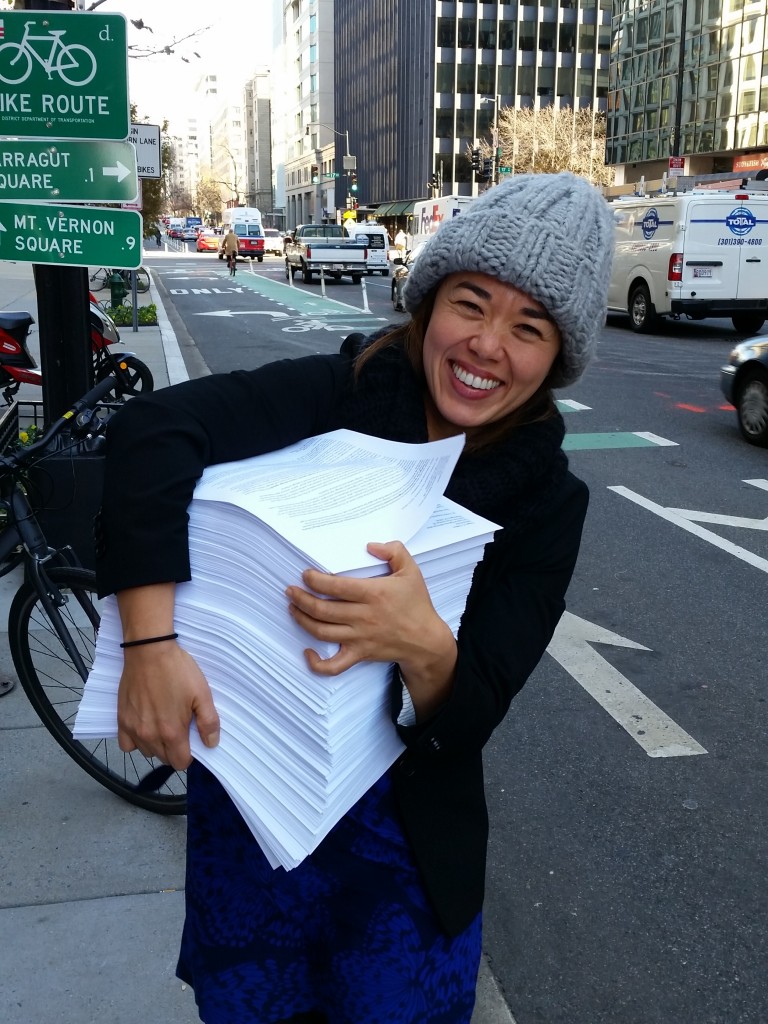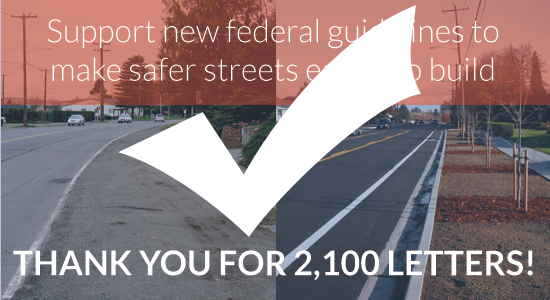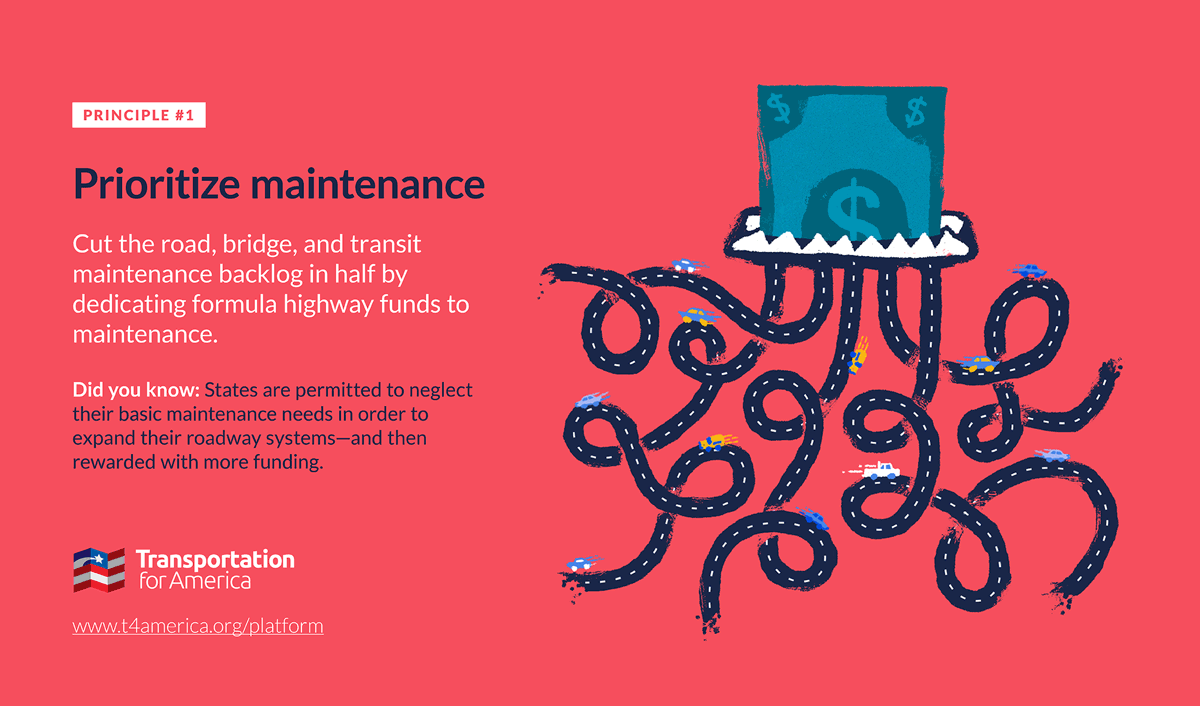2,100 letters delivered to FHWA in support of easing restrictive street design regulations
Earlier this week, with our partners at the National Complete Streets Coalition, we delivered nearly 2,100 letters to FHWA supporting their proposal to ease the onerous federal design standards that make it needlessly difficult for local communities to build safer, more complete streets.

National Complete Streets Coalition director Emiko Atherton on her way to FHWA in Washington, DC earlier this week.
It was an incredibly encouraging move by FHWA, and thanks to many of you who sent in one of the nearly 2,100 letters, FHWA will hear the message loud and clear that this move has broad support.
In case you missed the news back in November, FHWA made an encouraging proposal to scrap 11 outdated provisions in the current design criteria that local communities and states must adhere to when building or reconstructing certain roads with speed limits under 50 mph — adhere to, or go through an arduous process of requesting an exception from FHWA to do things like line a downtown street with street trees, reduce the width of lanes to add a bike lane, or curve a street slightly to slow traffic and make it safer for people in cars and on foot.
Communities of all sizes are eager to capitalize on their streets as economic assets and boost the bottom line by making them safe and attractive for everyone to use them. Under these current design guidelines for federal-aid roads, communities might adhere to out-of-date FHWA regs rather than fight for exceptions that can delay a project or even increase the cost.
Along with Smart Growth America and the National Complete Streets Coalition, we rallied our networks to show support for this welcome change. And earlier this week, National Complete Streets Director Emiko Atherton personally delivered all of your letters to the U.S. Department of Transportation — trying not to fall over while balancing the 15-pound stack along the way.
The overwhelming support for the proposed rule demonstrates the groundswell of bottom-up, grassroots support for designing safer, more complete streets. We hope FHWA will take note by moving ahead with adopting the rule as it stands and making no modifications.
Thank you to all who submitted a letter of support, we look forward to keeping you updated in early 2016 with the latest developments.




















